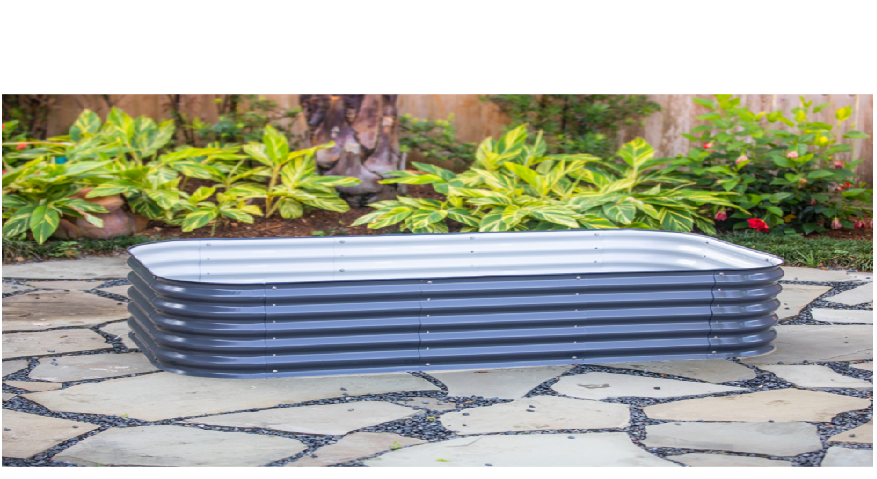What Plants Should You Grow In A Raised Garden Bed?

Raised planters box is a creative approach to growing plants in constructions elevated above the floor’s surface. Raised bed gardening has a plethora of advantages. You can easily manage the soil quality when you use raised garden beds. This results in a warm, well-draining, nutrient-rich, growing environment that optimal shoot growth and root development. In a raised garden you can even grow some fruit trees from a tree nursery like https://www.chrisbowers.
Raised bed systems can successfully improve soil quality, increase the growing area and save you a ton of bending and weeding. Such garden beds are also known to keep pests at bay successfully. Raised flower beds can be fashioned in various ways and made of multiple materials, including metal, wood, brick, and stone.
What Should You Plant In A Raised Bed?
You can grow almost any type of fruit and vegetable once you have raised garden bed kits. However, you must ensure that the growth factors that regulate plant development, like sunlight, distance, and temperature, are appropriate for your plants.
Growing vegetables and fruits in elevated garden Beds
Plants like vegetables and fruits require a lot of nutrients. Thus, these plants can easily thrive on raised beds.
Tomatoes
Tomatoes thrive when their roots stretch deep into the loose soil. They thrive when full sun is available and make excellent complements to elevated garden beds. It would help if you planted tomatoes towards the back of the raised bed as they can grow to pretty tall heights. To provide additional support, use tomato cages.
Legumes
As legume plants develop, they start to fix nitrogen into the soil. Thus, legumes serve a dual purpose in the elevated garden bed. They increase the soil’s nutrient level while providing abundant crops. They are available in both climbing and freestanding forms. Both the forms can be successfully grown on elevated garden beds.
Swiss Chard With Kale
In raised beds, Swiss Chard and Kale act as excellent late-season vegetables. They prevent compaction of the soil and flourish in milder temperatures. These plants can be further covered with cold frames or hoop houses to extend the growing season further.
Lettuce, Spinach, And Mixed Greens
The mild temperature of the soil and the fantastic draining capacity of elevated beds make it ideal for lettuce, spinach, and salad greens. As a gardener, you’ll appreciate that you may extend your growth period by having the vegetables planted early and in succession during the winter with suitable protection.
Brassicas
Brassicas are excellent first-round crops for growing in elevated garden beds. They are prone to undergoing bolting in hot weather and thrive in the soil’s controlled temperature provided by the raised beds. The soil in raised beds is warm that helps to extend the growing season for all types of early and late-season crops.
Radishes With Beets
Beets and radishes are attractive root vegetables that grow amazingly well in the soft soil of garden beds, especially when they do not have to compete with weeds or are hampered by rocky soil. They’re suitable for succession planting because of their rapid maturation times.





